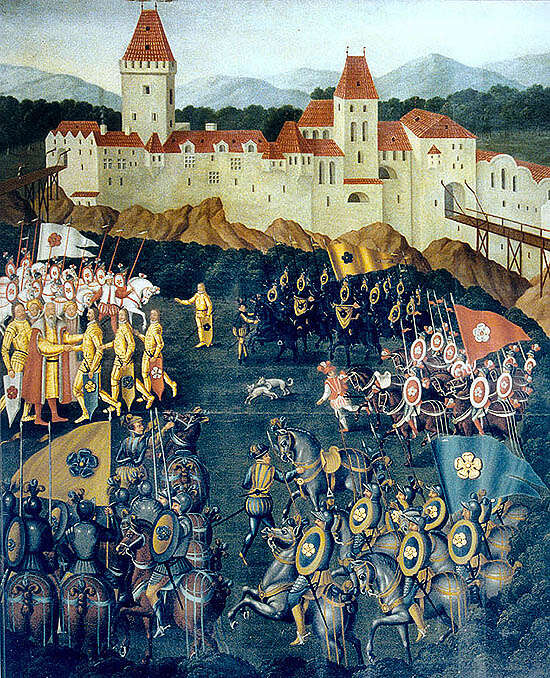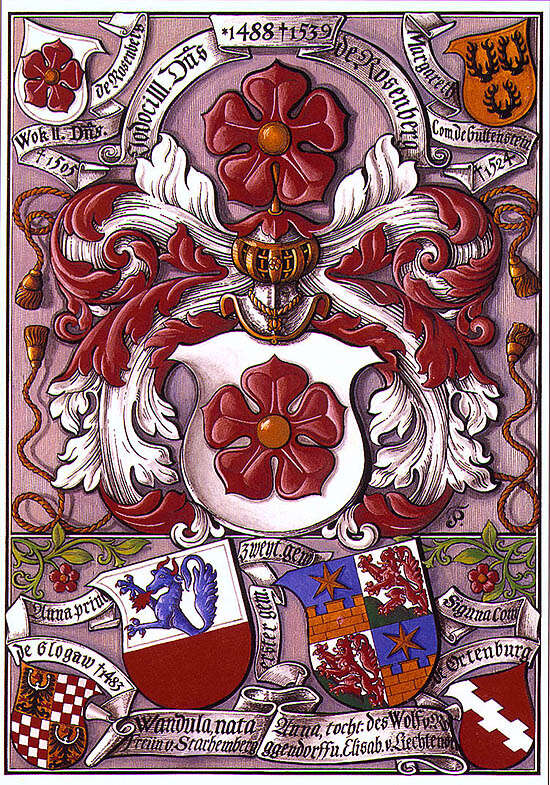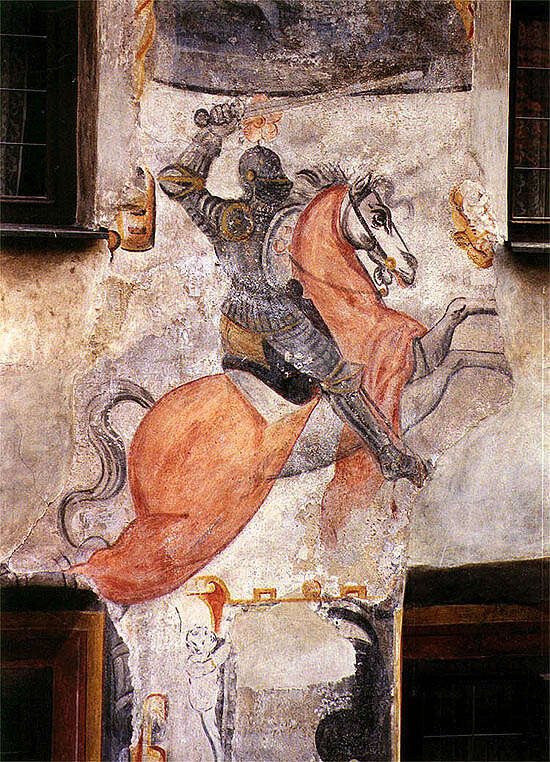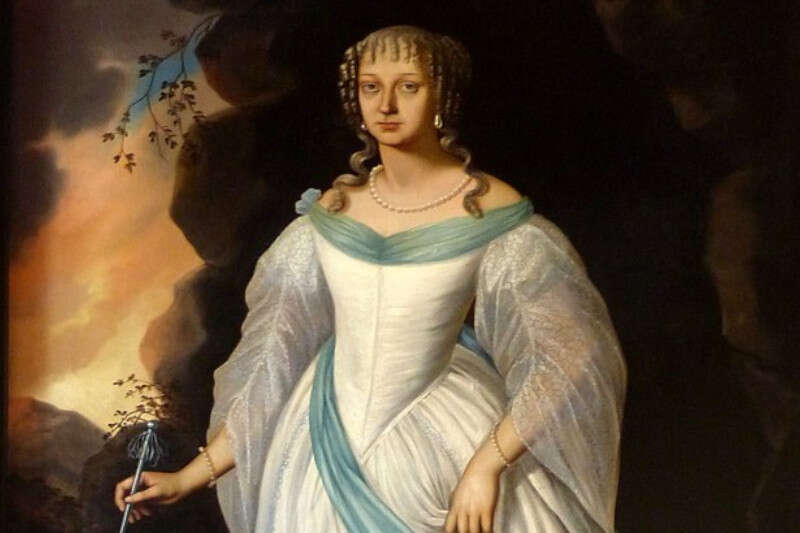Rosenbergs
The Rosenbergs owned Český Krumlov for 3 centuries, so they made a significant contribution to the history of the town and the castle. Petr I. of Rosenberg had a significant impact on the town's religious life in the first half of the 14th century. He was instrumental in building the castle chapel or the church of St. Jost and from his legacy the Minorite monastery was founded in 1350.
Dividing of the roses
The forefather of the Vítek family, Vítek I. of Prčice, died in 1194 and according to legend, he was supposed to divide his estate among his 5 sons. It was a ceremonial act called the ‘Dividing of the Roses’ and it took place under the Krumlov castle. You will notice that the symbol of a five-petalled rose is everywhere in Krumlov. In fact, the original coat of arms of the Lords of Rosenberg consists of a five-petalled rose.
New family lines branched
All the 5 sons have established their own family lines. Vitek's son Vitek III of Prčice and Plankenberg is considered the founder of the House of Rosenberg. The name of this branch of the Vitkov family was derived from the Rosenberg Castle, which was founded by his son Vok I of Rosenberg. This castle, in turn, probably got its name from the rose, which was the emblem of all the Vítkovs in various colors.
Oldest legal work written in Czech
As time passed, the power and wealth of this family grew. This was supported not only by an inheritance in 1302 from another branch of the Vítkov family - the Lords of Krumlov (e.g. Zvíkov). But also by the principle of the eldest son inheriting the estate, which prevented property division. This eventually resulted in the establishment of a dominion (manor) that was urbanized, had its own cemetery, and had its own town planner. The so-called Rosenberg Book, which is the oldest legal work written in Czech, was created here.
At the turn of the 12th and 13th centuries, the foundations of the greatest manor in the Czech state were built. It was the era of prominent family centers in Upper Austria, such as Prčice, Vyšší Brod, Soběslav, Veselí nad Lužnicí, or Blankenberg Castle.
They were the power elite
The Rosenbergs belonged to the power elite, who were often able to oppose the power of the king. They held high positions, served as governors, supreme chamberlains and marshals, and did not shy away from clerical ranks.
Another important personality of the family was the son of Oldřich I - Henry III of Rosenberg. He was the leader of the manorial unity, which was dissatisfied with King Wenceslas IV administration. They even imprisoned him in the castle of Český Krumlov in 1394. Henry's son Oldrich II of Roržmberk was one of those Czech nobles who defended the interests of the Catholic nobility.
A peacemaker Petr Vok was in debt
The last descendant of the family was Petr Vok who was a true cavalier. Why? In 1611 the Passau invasion took place, invited by the intelligent but already mentally ill ruler Rudolf II. Petr Vok sacrificed his entire financial reserve, the so-called ‘Rosenbergs Silver Treasure’ and bribed the Passau army. In this way, it returned peace to southern Bohemia for at least a few more years. He made sure that the soldiers, who otherwise made a living by looting, murdering, and rapping the rural population, were paid.
Petr Vok died in Třeboň in 1611 and had to sell two thirds of the family property due to debts. For example Emperor Rudolf II bought Český Krumlov from them, so Třeboň became the new seat of the Rosenbergs. Despite their debts, they belonged to the richest Czech nobility. After his death, the family fortune was arranged to pass to the Vamberk family. Later on, the Eggenbergs and eventually the Schwarzenbergs kept the dominion together.










